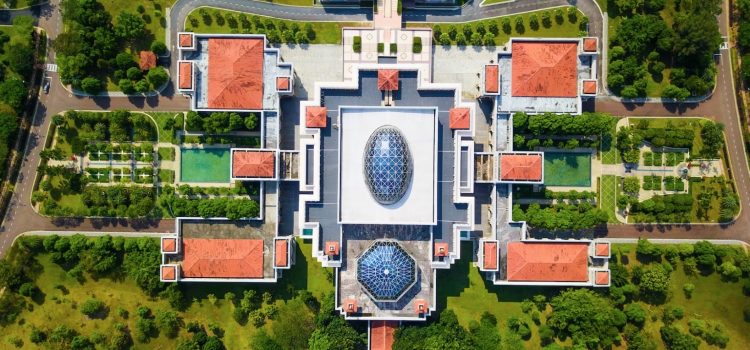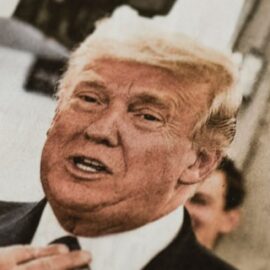

This article is an excerpt from the Shortform book guide to "Billion Dollar Whale" by Tom Wright and Bradley Hope. Shortform has the world's best summaries and analyses of books you should be reading.
Like this article? Sign up for a free trial here.
How was Jho Low involved with the Iskandar project? Was Low successful with his scheme?
In the book Billion Dollar Whale, Tom Wright and Bradley Hope chronicle the story of Jho Low, a Malaysian entrepreneur who allegedly stole billions of dollars from his government’s coffers. One of his schemes was the Iskandar Project, a plan to develop a financial center in Malaysia’s Iskandar region.
Read on to learn about Low’s involvement with the Iskandar project, according to Wright and Hope.
Jho Low’s Involvement With the Iskandar Project
In Billion Dollar Whale, Pulitzer finalists Tom Wright and Bradley Hope chronicle the rise and fall of Jho Low, a Malaysian entrepreneur who allegedly stole billions of dollars from his government’s coffers. Low spent his newfound wealth on a decadent lifestyle, hosting parties with celebrities, purchasing yachts, and gambling exorbitantly. In this article, we’ll explore Low’s relationship with the Iskandar project in Malaysia, according to Wright and Hope.
Low Learned to Work Carefully to Seem Legitimate
Low’s first foray into business failed due to his eagerness to quickly put things together, which resulted in him cutting corners. According to Wright and Hope, to succeed in his future ventures, Low would have to learn to work more carefully. Low’s next endeavor, the Iskandar land project, which brought together his contacts in the Middle East and Malaysia, would offer him another learning experience.
(Shortform note: While Low learned to work somewhat more carefully, his risk-taking behavior continued and ultimately led his scheme to be exposed. According to the experts, this is a common theme for embezzlers and money launderers—psychologically speaking, many white-collar criminals fail to reflect on their behaviors and are unable to foresee the consequences of their actions.)
The Iskandar land project was a plan to use a Malaysian sovereign wealth fund to construct and develop a financial center in Malaysia’s Iskandar region, to rival financial centers in Singapore and elsewhere. When Low learned that the Malaysian fund was looking for co-investors, he immediately put them in touch with his friend Khaldoon Khalifa al Mubarak, who ran the UAE’s Mubadala development fund. Thanks to Low’s involvement, Mubadala agreed to help fund the project.
(Shortform note: The Iskandar land project was Malaysia’s bid to enter the ongoing battle to be at the center of Asian finance. According to experts, as Asian economies have grown, Asia’s financial capitals, Hong Kong, Singapore, and Shanghai, are now three of the five most important financial centers in the world. While the Malaysian economy has experienced rapid recent growth, Malaysia still has a long way to go to catch up with its neighbors.)
As Wright and Hope describe, the deal was a win for both Prime Minister Najib Razak and Low. Low permitted Najib to take credit for the project’s success, bolstering his political credentials. In turn, Low had become increasingly influential with Najib and his family, as their political power grew.
While the Iskandar land project helped Low increase his influence, he failed to benefit financially from his role in the deal. According to Wright and Hope, Low intended to profit by charging a fee for setting up and brokering the deal. However, the bank that handled the Iskandar project’s funds refused to pay Low, seeing such fees as shady and archaic.
(Shortform note: While Low’s proposed brokerage fees were deemed suspect, brokerage fees are fairly common in many other industries, albeit for much smaller transactions. In particular, brokerage fees are common in the stock market and in real estate, where they’re often charged by stockbrokers and Realtors in exchange for their services.)
As Wright and Hope describe, Low realized that he would need to use more subtle methods to siphon money from these kinds of deals. When his brokerage fee was denied, Low opened several offshore accounts set up to look like construction companies. By creating these look-alikes, and getting his powerful contacts to vouch for their validity, Low fooled banks into depositing money from the Iskandar project into accounts that he alone controlled.
(Shortform note: Companies like the ones that Low set up are known as shell corporations. While shell corporations have some legitimate purposes, such as in the case of startups seeking investment, they’re also often used to evade taxes and launder money.)
On future deals, Low would set things up but avoid taking any public role. Instead, Low’s associates took the public face of operations and helped funnel money out to him. This strategy allowed Low to use his friends’ legitimacy to push his deals through. His friends could profit too, while Low pulled the strings in secret.
(Shortform note: This setup, in which Low did the majority of the financial dirty work himself, may have offered his associates some degree of plausible deniability. Plausible deniability is a legal and political concept in which some members of an illicit organization who lack full knowledge of the organization’s wrongdoing are able to escape being blamed.)

———End of Preview———
Like what you just read? Read the rest of the world's best book summary and analysis of Tom Wright and Bradley Hope's "Billion Dollar Whale" at Shortform.
Here's what you'll find in our full Billion Dollar Whale summary:
- A chronicle of the rise and fall of Malaysian entrepreneur, Jho Low
- The tactics Low used to succeed as a con man
- The political and financial context for Low's scheme






